Candy
Like most people, you may have a sweet tooth. And like most people, you’re probably wondering if eating candy will mess up your diet and your workouts. Well fear not, we have figured out a way to improve fitness while still enjoying the sweet taste of candy. Keep reading to learn more about how candy can help your workouts.
Sugar
There are many candies that are mostly, if not all, sugar. This article is about the sugary type of candies like jelly beans, skittles, peppermints, and similar candies. These type of candies may be able to provide energy during your workout. A few pieces of candy may increase your blood sugar, which may give you energy before, during, and after your workout. You should always have some type of sugar readily available just in case you hit the wall. And candy, is usually pretty easy to carry around.
Furthermore, sugar is one of the big three: fats, carbs, and protein. If you want to learn more about estimating your macros, click the image below.

Glucose
Your muscles need glucose. In fact, glucose is so important that we actually measure how much glucose we have flowing in our blood. Most candy is made up of sucrose, also known as table sugar. Table sugar is composed of roughly 50% glucose and 50% fructose. In a perfect world, candy would have 100% glucose but, that's not gonna be possible to find. Fortunately, our bodies can use both the glucose and fructose from the candy.
Want to learn more about exercise science and sports nutrition? Click on the image below to get more info on all of our classes.
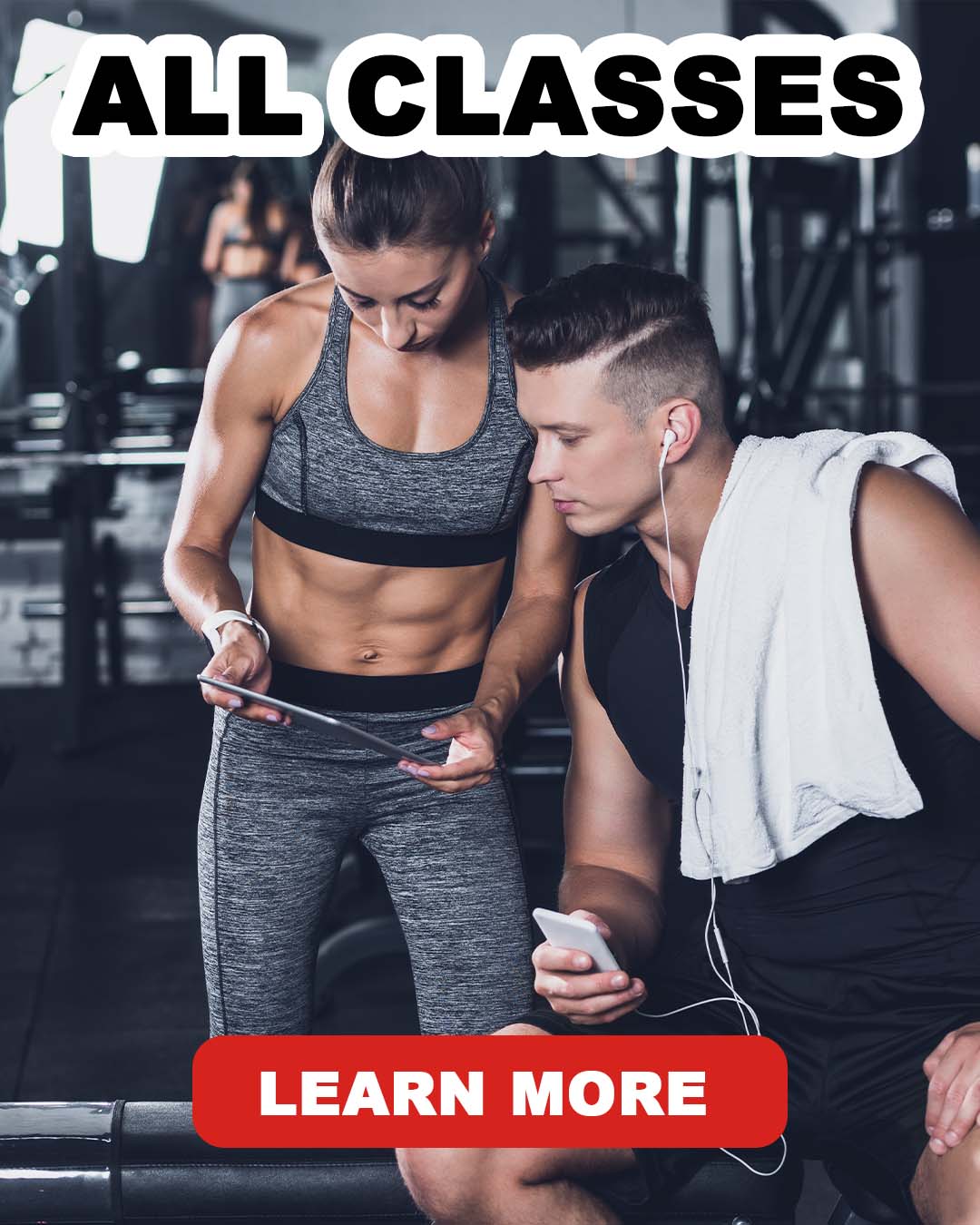
Sports Drinks
Speaking of glucose and fructose, that's what's also in your workout drinks like Gatorade and PowerAde. You'll have to look at the ingredients to confirm, but at one time Gatorade had glucose syrup while PowerAde was using high fructose corn syrup. Again, check your label because ingredients have a way of changing without us ever knowing it. Just know that we need sugar, and we especially need sugar if we are going to be active. There's a reason sports teams keep sports drinks on the sideline.
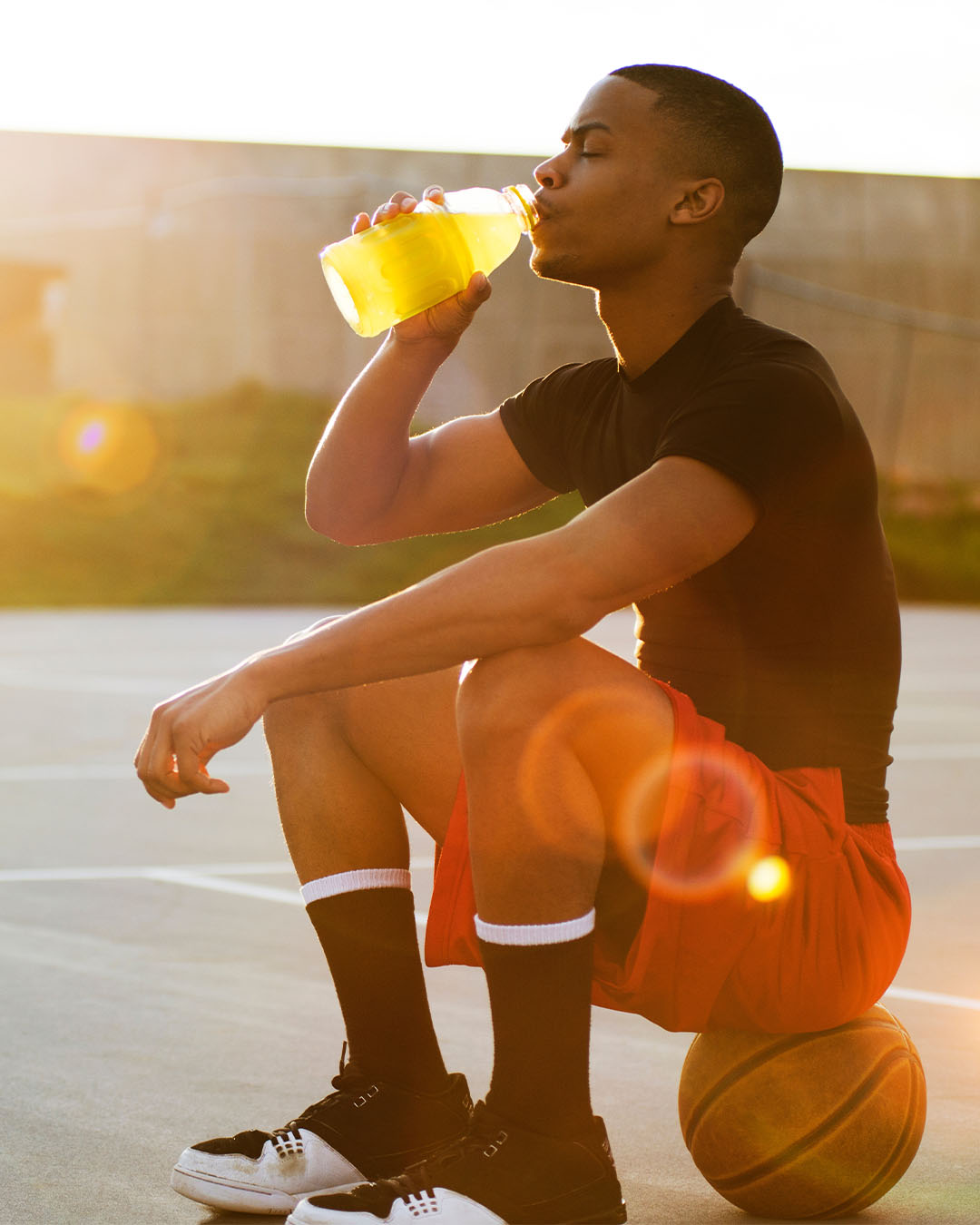
But, we also need water. In fact, staying properly hydrated ensures your body is performing optimally and also burning fat efficiently. Click this link to learn more about how much water your body needs.
Insulin
After eating a large meal or a sugary snack, our blood glucose goes up. The increased blood glucose signals our pancreas to release insulin so the sugar can be uploaded into our cells. You may have heard that insulin is a bad thing, but while you're working out, insulin can be a good thing.
Insulin is an anabolic hormone that can help with muscle building. After your workout, the insulin will push the sugar and the protein into your cells to help recover and rebuild. In the right environment, insulin will help build muscle instead of increasing your fat stores.
Speaking of protein, I'd be remiss if I said eating candy without protein is best. In fact, you should eat protein before, during, and after your workouts as well. Do you know how much protein you should be eating. The MACROS video above should help. Or, click the image below to read how much PROTEIN you should consume each day.
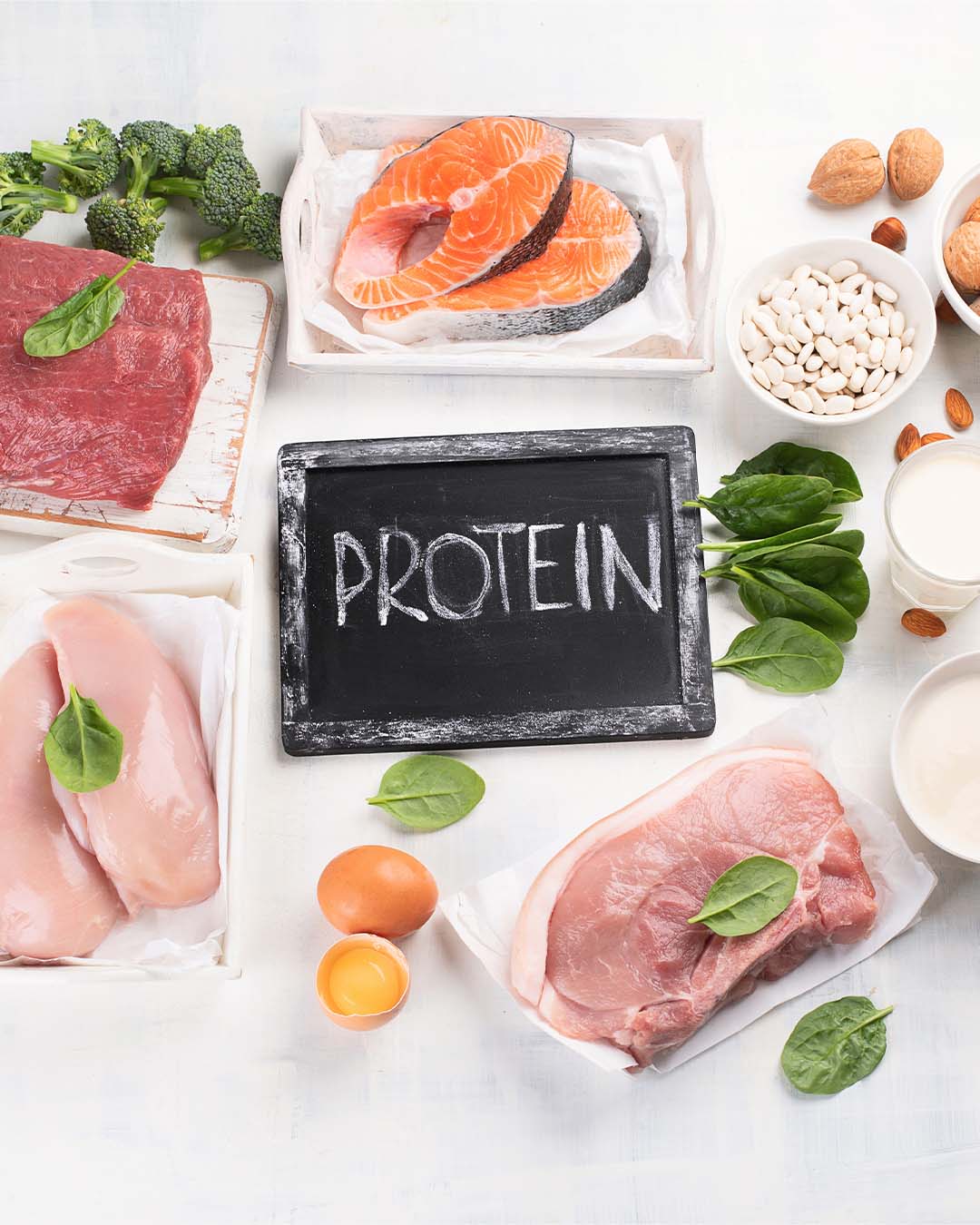
Pre-workout Timing
My favorite pre-workout is caffeine, carbs, and protein. All three have been scientifically proven to improve your workouts. So when should you start consuming your candy or your pre-workout snack? Dr. Ivy (2004) reported that a little sugar 10 minutes before your workout will get your body ready for your workout by giving you more energy. The increased sugar in your blood will also keep cortisol levels to a minimum. Cortisol is the hormone that rises during workouts to help you deal with the extra stress you are putting on your body. Too much cortisol will also start breaking down your muscle and using the amino acids for energy. We want to avoid using our muscles for energy.
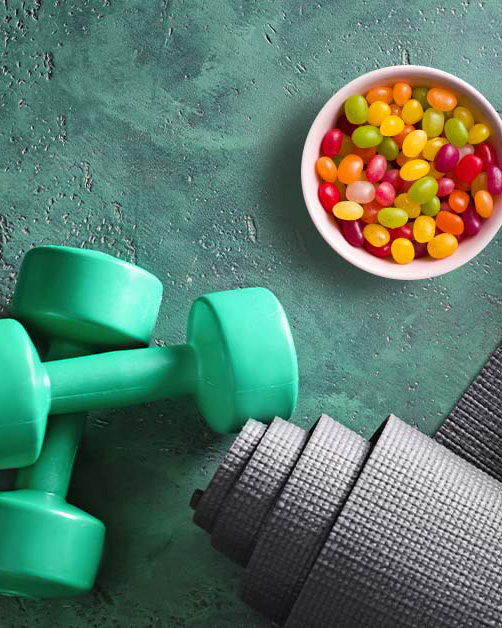
Carb:Protein Ratio
So now that we know sugar and protein are important for a strong workout, what is a good carb/protein ratio? Dr. Ivy (2004) says a good ratio of carbs to protein is about 3 to 1. For example, 30 grams of sugar and 10 grams of whey protein would be good for most athletes. Bigger athletes may need 45 and 15 or even higher.
Fast acting sugar like candy, table sugar, or a banana would be best. You can sip on your pre-workout drink before, during, and after your workout. Speaking of bananas, they work great as a pre-workout snack and they really work great with strawberries and protein powder. Click the image below for a fresh fruit pre-workout smoothie.
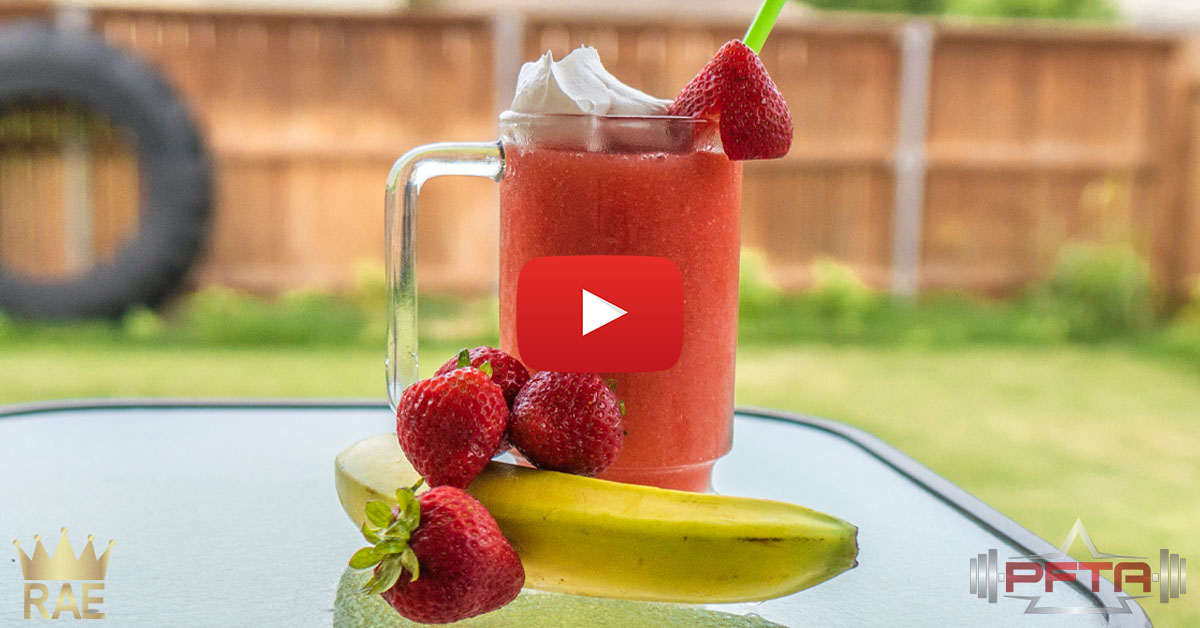
Post-workout
After a hard workout, your muscles have used most its muscle glycogen. Therefore, your muscles will be starving for sugar to replace the lost glycogen. An influx of sugar and protein, with the help of insulin, will stimulate an extra uptake of glucose and amino acids into your muscles! The glucose will synthesize into the much-needed glycogen, while the amino acids will turn into hard-earned muscle! This is why you see lots of athletes consuming post-workout smoothies to start the recovery process. The best post-workout snack has a high amount of sugar with a good amount of protein. The strawberry banana smoothie works great before or after your workout. But if you like pineapples, click the image below for one of my other favorite smoothies.

Fat and Fiber
Sugar and whey protein move quickly into your blood. But, not all nutrients move that quickly. Fat and fiber are important, but they don't need to be in your post-workout snack. These two molecules will slow down the digestion and absorption of glucose and amino acids. So when choosing a post-workout snack, try to limit the fat and fiber for now. But, it is OK to include some caffeine if that's what you need. It turns out caffeine can be beneficial before AND after your workout. Click the image below to read more about the benefits of caffeine.
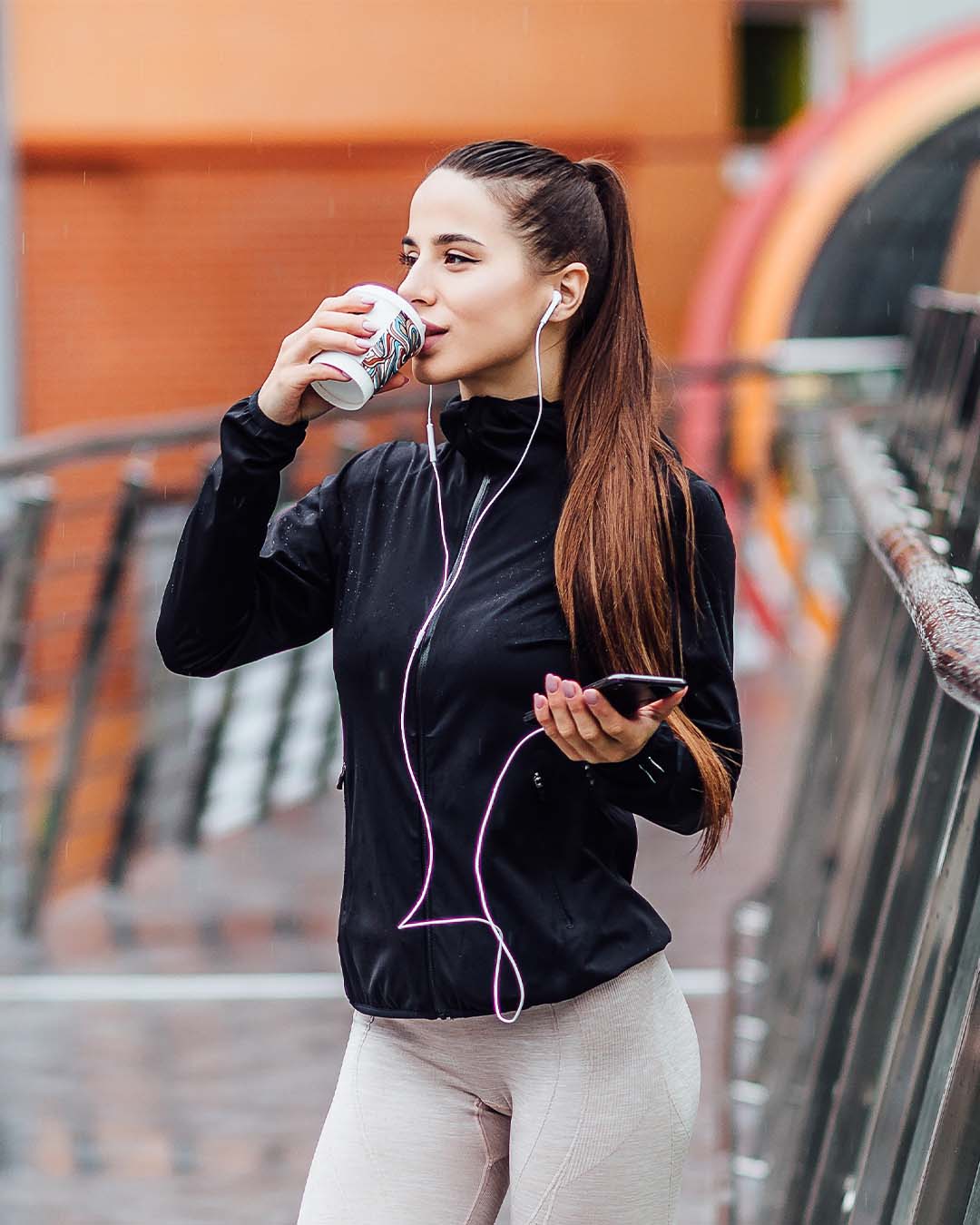
Healthy Diet
Sweets are OK if you're working out, but, remember you should resume your normal diet within a few hours of finishing your workout. Sugar and insulin, when you are NOT working out, is NOT necessarily a good thing. For example, sugar during a Netflix binge, encourages your body to store the extra energy as fat. Plus excessive sugar, when you're not working out, may cause type 2 diabetes.
When you're not working out, a good diet consists of complex carbs, protein, non-saturated fats, and fiber in every snack.
If you need help with an exercise plan and/or a nutrition plan, contact a PFTA certified personal trainer like the one below. Click the image below for more info.
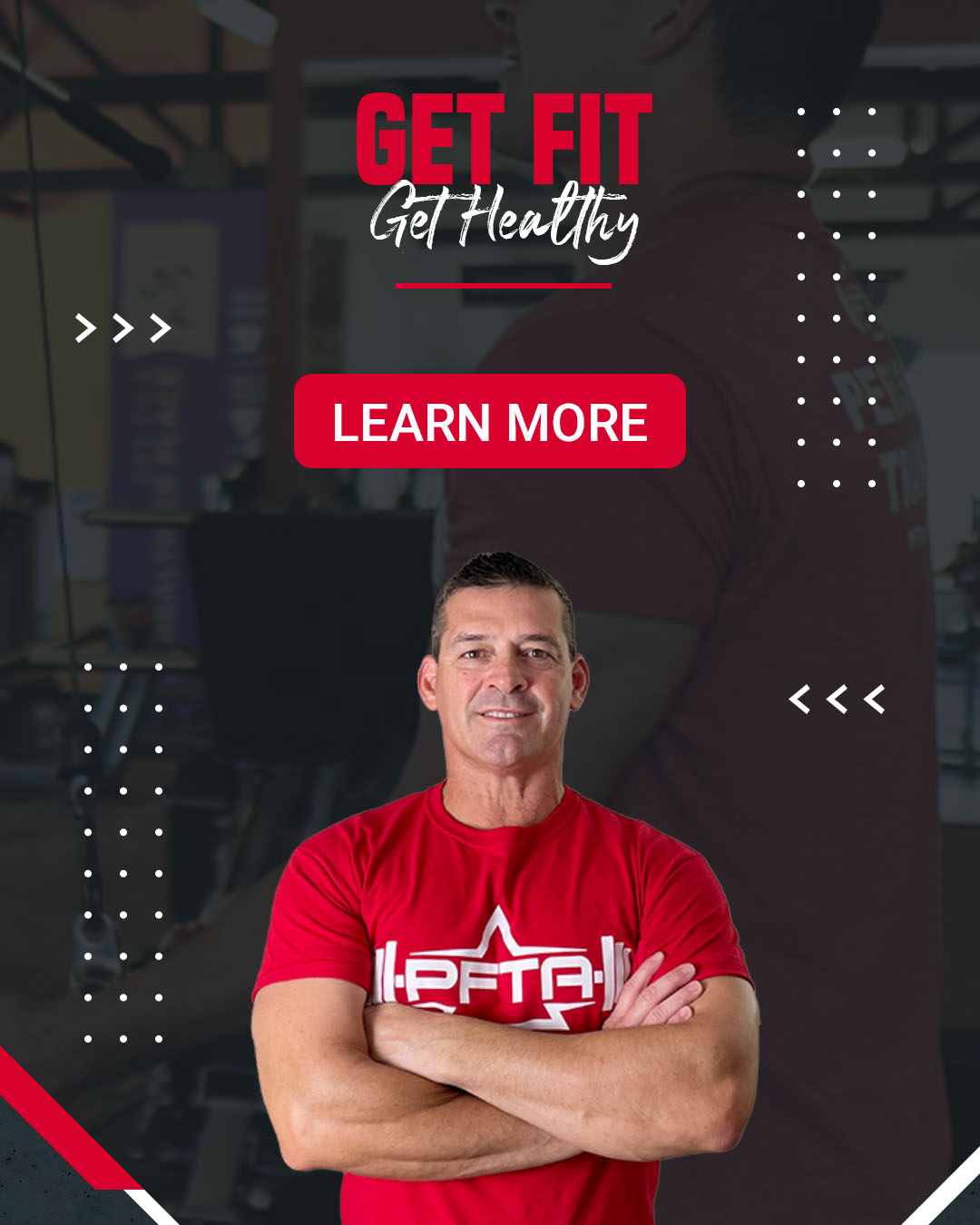
More Fat Burning
Hours after your workout, your body is trying to recover. In the right environment, your body will continue to burn fat to recover. But, too much sugar when you're NOT working out will give you sugar crashes and then ultimately more sugar cravings.
On the other hand, a well-balanced meal, including fat and fiber, will help curb your appetite. A well-balanced meal will also provide you with the necessary vitamins and minerals to help you with recovery. Proper diet and exercise will help boost your metabolism as well. Need more tips on increasing your metabolism? Click the image below for more tips on boosting your metabolism.
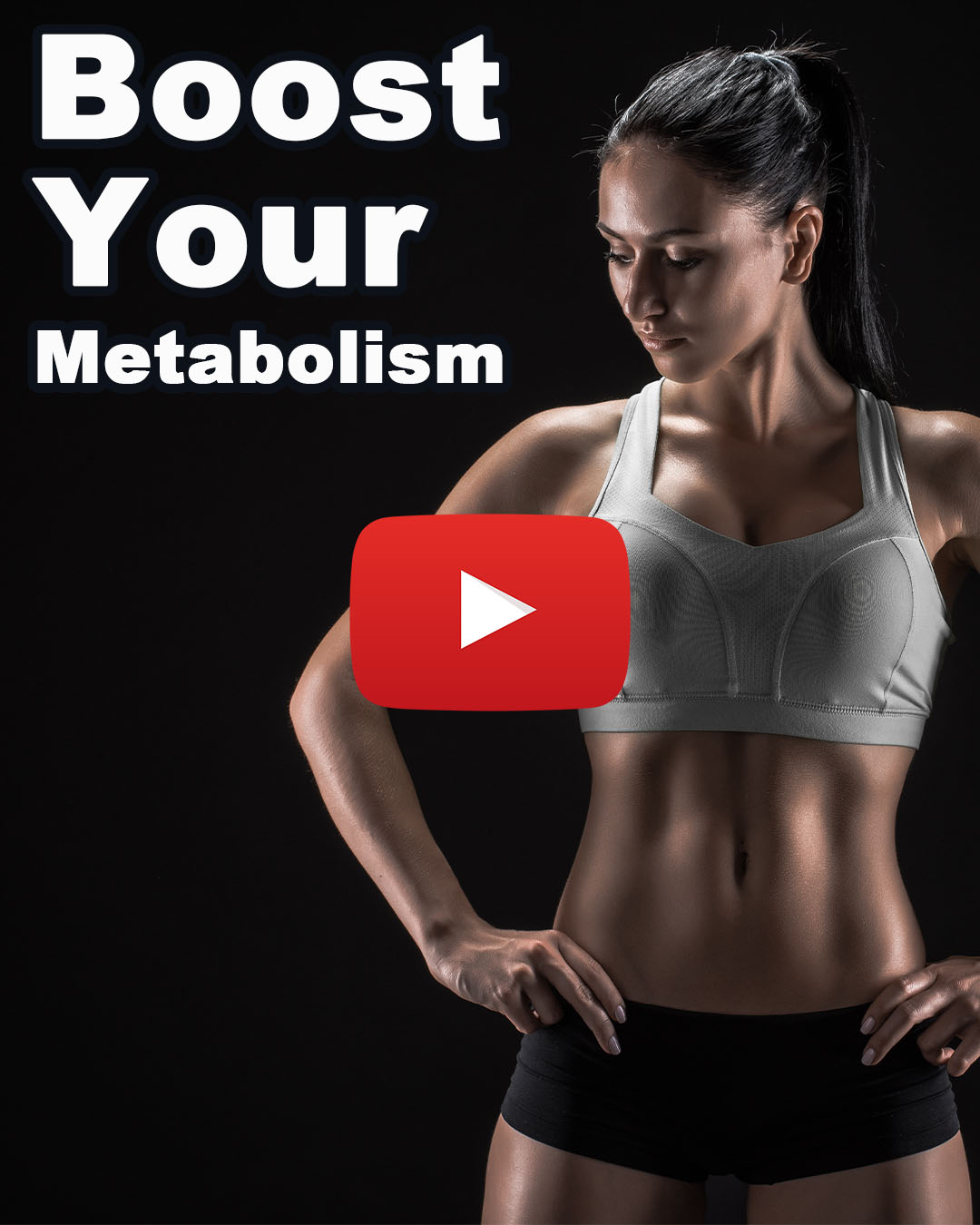
Knowledge is Power
And if you want more tips on exercise and nutrition, add your email below. You'll receive weekly tips directly to your inbox. Plus, you'll also receive the occasional coupon code for our classes.
Summary
There is a time and a place for sweets. If you don't like candy, then you can use sweet fruits as your sugar of choice. Remember, sugar can be a good thing if used correctly. Sugar, protein, and caffeine, could be a very helpful combination for your workouts. But, limiting sugar when you are not working out, is strongly encouraged. In fact, if you're trying to lose weight, click this link for more weight loss tips you can start today! Happy health and happy training!
Written By
R.A. Escobar, PFTA Instructor and Personal Trainer
Sources:
Ivy, John; Robert Portman. Nutrient Timing. The Future of Sports Nutrition. 2004.